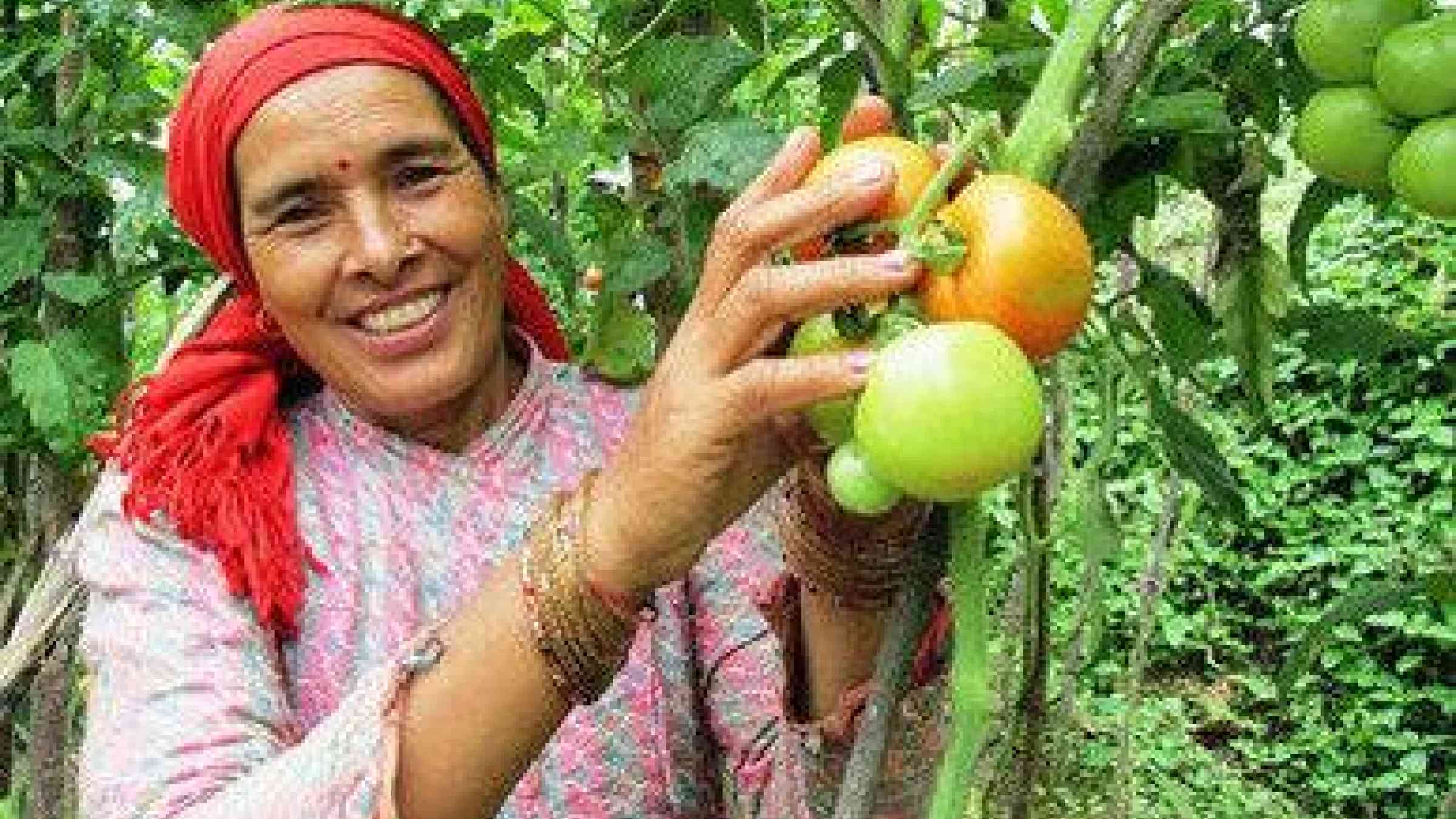
For the farmer seeing his crops damaged by climate change year after year, knowledge is power. Knowledge can bring on-the-ground solutions to problems that are already impacting on rural communities.
“We are noticing changes to the weather and crops,” said Surya Thapa, a 52-year-old farmer and representative from the District Agriculture Office in Dhulikhel, a small town about an hour’s drive from the Nepali capital of Kathmandu. “New diseases are appearing. For the trees, the flowering time was March, now it is February. We are thinking this is because of climate change.”
Fortunately, one of his office colleagues attended a recent training course on the impacts of climate change. “He shared the ideas on new methods [of farming] and varieties that can adapt to climate change and in the coming year we will manage some programs on climate change ourselves,” he said.
Learning how to adapt
Spreading information on how to adapt in the face of weather extremes is fast becoming an essential tool for communities on the front line of climate change. Dhulikhel is no exception.
Dhulikhel, the capital of Kavre Palanchowk District, is perched on the side of terraced mountain slopes green with the leaves of potato plants and corn and scattered with the gold of mustard. Almost all families till a plot to provide meals at home at the very least. So even at 50 to 60 Nepalese rupees ($0.50-$0.60) a kilo for potatoes, a household staple, reduced harvests cut deeply into household expenses.
The small town is no stranger to environmental calamity, which many attribute to changing rainfall patterns and rising temperatures leading to unexpected glacial melts and river surges. Just 3 years ago, around 200 riverside farms were flooded and although farms are typically small at less than a hectare - the loss of potato crops wiped out an entire harvest income and forced many tenant farmers to move on.
Women in the area who attended the same training as Surya are also learning and actively sharing their new knowledge on issues like planting trees, and better irrigation systems to prevent landslides and conserve water.
“Now I can answer why we have climate change and what we should do about this or that,” said Sarita Sapkota, 42, who lives nearby with her husband and two daughters and works at the Women and Child Development District Office to promote women’s empowerment.
Strengthening climate resilience
Mountainous, landlocked Nepal, where agriculture contributes a third of the economy is reckoned to be the fourth most climate-vulnerable country in the world with 1.9 million people highly vulnerable to climate change and 10 million more increasingly at risk.
ADB is working to reduce that risk with the help of a $7.6 million grant to raise awareness of climate change and incorporate climate risks into all policies and planning. This involves training planners across 61 of Nepal’s 75 districts to help them identify and integrate climate change adaptation measures into the district development plans. Training in the remaining districts is being conducted by other development partners.
The grant is part of the $1.2 billion Pilot Program for Climate Resilience, financed by the multi-donor Climate Investment Funds. The program aims to demonstrate ways to integrate climate risk and resilience into development planning in nine large at-risk countries, including Nepal,
Working together as a community
The District Training on Climate Change and Community-based Adaptation was one such initiative under which three local NGOs trained nearly 800 planners in 31 districts. Training included learning concepts and planning skills and fieldwork to develop community adaptation plans. The second phase, due to start in coming months, will train the same number again.
Knowledge has indeed increased. An NGO survey of trainees showed understanding of climate change impacts and planning processes has grown. Meanwhile, 82% of the participants said they were very confident in applying their new-found knowledge.
“Yes, it was very useful,” said Biswanath Dahal, who participated in the training in Dhulikhel. Dahal heads up development planning for the Village Development Council in the village of Patle Khet, where other trainees like Sarita Sapkota did some fieldwork and helped prepare a local community plan. Dahal has suggested district plans include support for growing offseason vegetables, collecting waste water, and improving forest governance to offset the impacts of climate change.
Even before the district plans are finalized though, many in Patle Khet are already implementing those ideas. Around 250 farmers in the area are now planting different crops in the off-season to smooth out their income over the year and have started to collect rain and waste water so they have a steady supply for irrigation.